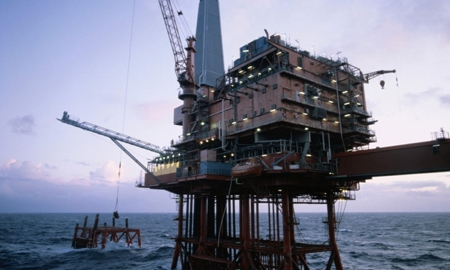
In 2007, major deposits of oil were discovered off Ghana’s coast at the Jubilee field. From the outset, the government was determined to use the new oil bounty for the good of the whole nation, expressing its intention that revenues from the newfound oil wealth be channelled into developing other areas of the economy, such as mining, industry and agriculture, and schemes to benefit society.
Speaking at a summit on the Millennium Challenge Account Compact Two (MCA II) in Accra last December under the theme “Powering Ghana for Accelerated Development”, Ghana’s Vice-President John Dramani Mahama said that securing energy supplies was vital to the nation’s development. Mr Mahama said that the government had already begun power sector reforms designed to increase power generation, commenting: “Investing in power, making it reliable, and improving access are the ways to go.” He also said that further investment in improving infrastructure, such as power lines and substations, was essential, and that the country would explore other sources of energy, such as solar, wind and biomass, to increase power capacity
“We have a tremendous responsibility to uplift the people of this country and we cannot do it alone,” says Inusah Fuseini, Deputy Minister of Energy, who welcomes international participation and highlights Germany’s technological expertise as being particularly suitable for Ghana’s need to develop oil and gas infrastructure. Prof Thomas Mba Akabzaa, Chief Director at the Ministry of Energy, welcomed delegates from the China Chamber of Commerce in February, who came to explore various business possibilities in the sector.
Ghana’s government has actively sought out advice from more established oil-producing nations, such as Norway and Trinidad and Tobago, to prevent the new blessing turning into a curse. “Avoiding the so-called ‘Dutch disease’ is crucial. We have been blessed with an important resource; now we need to help our people to use it to improve our education, health and infrastructure systems,” says Emmanuel Armah-Kofi Buah, Deputy Minister of Petroleum, referring to the possible consequences when overreliance on large oil revenues leads to the abandonment of other economic sectors, environmental degradation, conflict, and corruption. The term originated from economic problems experienced in the Netherlands following the Dutch discovery of a large natural gas field in the late 1950s.
Nevertheless, the country has been singled out as being far from that situation and commended for setting up a sovereign wealth fund. Last year parliament passed the Petroleum Revenue Management Act, which ensures transparency in the distribution of oil revenues and allowed the country to set up Stabilisation and Heritage Fund accounts. Intended to accumulate savings for future generations, the government confirmed that in 2011 these two accounts received $54.8m and $14.4m respectively from oil revenues in the 2012 budget speech. In February 2012, a new investment advisory committee was inaugurated and held its first meeting. The committee will formulate sovereign fund investment strategies for the Minister of Finance, Kwabena Duffuor, and provide guidelines on asset-allocation and targeted returns.
Also passed last year, the Petroleum Revenue Management Bill allows the government to borrow against future oil revenues, as well as the Offshore Petroleum (Health and Safety) Bill, to manage the potential environmental impact of the country’s new oil industry.
By 2020, the government wants 10 per cent of Ghana’s energy mix to come from renewable sources of energy. The Ministry of Energy states that Ghana’s exploitable potential of 500MW from wind, solar, hydro and biomass/waste-to-energy sources would need investment of $640m-$900m. A Renewable Energy Law is under consideration by parliament that will provide fiscal incentives for their development by independent power producers (IPPs).
Ghana is a member of the Extractive Industries Transparency Index (EITI). The hugely successful implementation of the transparency process in Ghana “can be party credited to civil society, which has played a huge role in EITI in Ghana,” according to the organisation.
0 COMMENTS